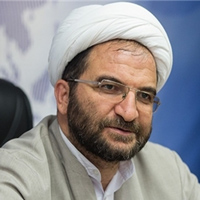A Revision of the Theory of ‘the Reliability of the Predecessor’s (salaf) Understanding’ Based on Its Conceptual and Extensional Analysis in verse 100 of Surah Al-Tawbah
The most basic intellectual basis of Salafieh is the reliability (hojjiyat) of the predecessor’s (salaf) understanding. They believe that the predecessor’s understanding [of sunnah] is more correct, wise and valid in comparison with the descendent’s (the khalaf) understanding , due to factors such as better understanding of the texts, being closer to the Prophet, and being close to the time of the Qur’an’s revelation. The Salafieh have argued in favor of their view by various verses of Qur’an. One of their most important arguments for this claim is verse 100 of surah Al-Tawbah. Relying on the general sense of this verse and connecting obedience and understanding, they have sought to prove the authority of the predecessor’s understanding. Although a predecessor who obeys the Prophet’s teachings in his/her thought and practice is more virtuous, but there is no reason to claim their absolute obedience. Proving this claim by verse 100 of surah Al-Tawbah has many drawbacks including: confusing the meaning of practice with understanding, lack of generality of the verse, lack of connection between consent and authority of understanding, lack of the absolute meaning of obedience and narrations indicating the superiority of successors over predecessors. In addition to explaining the Salafieh’s claim, I have tried to examine and critique their arguments in this article.
-
A Typology of Traditional Islam in terms of Constant and Variable Elements of Religion
Seyed Ali Bathaei *, Mehdi Farmanian, Ebrahim Qasemi
Pajouheshname - ye - Mazaheb - e - Eslami, -
A critical rereading of Tabatabai's Madrasi point of view regarding the place of debate in the first centuries of Imamia
Mogtba Moradimaki *, Safdar Rajabzadeh, Mehdi Farmanian
Journal of Kalam Pajouhi,



